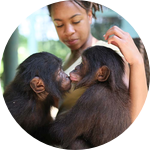About This Project
Bonobos, humans' closest living relative found only in the Democratic Republic of the Congo, are gravely endangered. But it’s not too late to stop them from going extinct. We plan to use conservation psychology, a field that considers how populations think about time, risk, and welfare, to improve communication about conservation among the Congolese. By supporting this project, you can help us keep these incredible beings on our planet.Ask the Scientists
Join The DiscussionWhat is the context of this research?
Conservation psychology aims to improve wildlife protection by studying people’s perceptions and attitudes towards animal welfare. Our previous research has explored how representations of great apes in the media can negatively impact conservation efforts, and how subtle changes in communication about animals can boost conservation support. However, such studies have only been done in Western populations.
We are focused on protecting bonobos, a great ape species found only in the Democratic Republic of the Congo. To protect this species, we want to explore these same questions of wildlife perceptions among the Congolese, an underrepresented population in psychology, but the population most capable of making powerful, impactful decisions on the future of the bonobos.
What is the significance of this project?
Wildlife destruction is increasing, yet support for conservation is decreasing. The success of any conservation effort has to do with how information is conveyed and how actions are incentivized. What makes a conservation effort successful will vary from population to population. Plenty of research has been done among Americans to determine what type of messaging best increases conservation support. However, little has been done to evaluate if these same strategies are effective among the populations closest to the species in question. This is the first study of its kind to apply psychological research to improving conservation programs in Central Africa. We hope to extend the results of this study to improving conservation efforts for other wildlife causes around the world.
What are the goals of the project?
Our overarching goal is to improve support for bonobo conservation in the Democratic Republic of the Congo. We plan to do this by:
1) determining quantitative differences between how Congolese populations and Western populations think about wildlife and conservation.
2) designing evidence-based communication techniques to encourage conservation practices among the Congolese, and evaluating their effectiveness.
3) using results to improve the educational outreach program among existing bonobo welfare and conservation organizations.
To accomplish these goals, we will use methods adapted from developmental psychology and behavioral economics. We will work with our long time partner Lola Ya Bonobo, a sanctuary for rescued orphaned bonobos located in Kinshasa, the capital of the Congo.
Budget
Traveling to the Congo can be expensive! But our trips are always worth it for the data in the end. Much of the costs are to cover the airline and visa prices for travel to and from Congo. In order to conduct research, we will also need to cover the costs of the necessary research permits.
Some of our data will be collected through surveys, and some of our data will be collected using behavioral choice tasks. We’ll need to purchase all the materials to conduct our studies for our estimated 200 participants.
As always when working abroad, we aim to be culturally appropriate and express our sincere gratitude to the people with whom we are working. Gift-giving is incredibly important in Congolese culture as a way of showing respect and thanks. We always like to provide small gifts to the schools and organizations we work with in order to maintain good relationships and ensure future partnerships (i.e. school supplies, updated text books, etc).
Meet the Team
Team Bio
I grew up in Washington D.C spending my free time at the National Zoo and at our local Audubon Society. My love for wildlife led me to study the comparative psychologies of humans, bonobos and chimpanzees at Harvard University.While conducting a psychology study with a village outside of a chimpanzee reservation in Uganda, I became interested in how local populations viewed the efforts of Western conservationists and primatologists. I began wondering if we can use psychological research to improve conservation efforts to better help both great apes and local populations.
I am now a PhD student in the Hominoid Psychology Research Group at Duke University, a research group committed not only to studying great ape cognition and behavior, but also to educating others about these remarkable creatures and their need for protection. I’m excited to explore ideas of conservation psychology by focusing on human and great ape populations in the Democratic Republic of the Congo.
Press and Media
- Lola Ya Bonobo Sanctuary
- Hominoid Psychology Research Group at Duke University
- Use of "Entertainment" Chimpanzees Distorts Public Perception Regarding Their Conservation Status, PloS One
- Live Science: Bonobos on the Silver Screen!
- National Geographic: Endangered Bonobos Reveal Evolution of Human Kindness
- Bonobo Handshake by Vanessa Woods
Additional Information
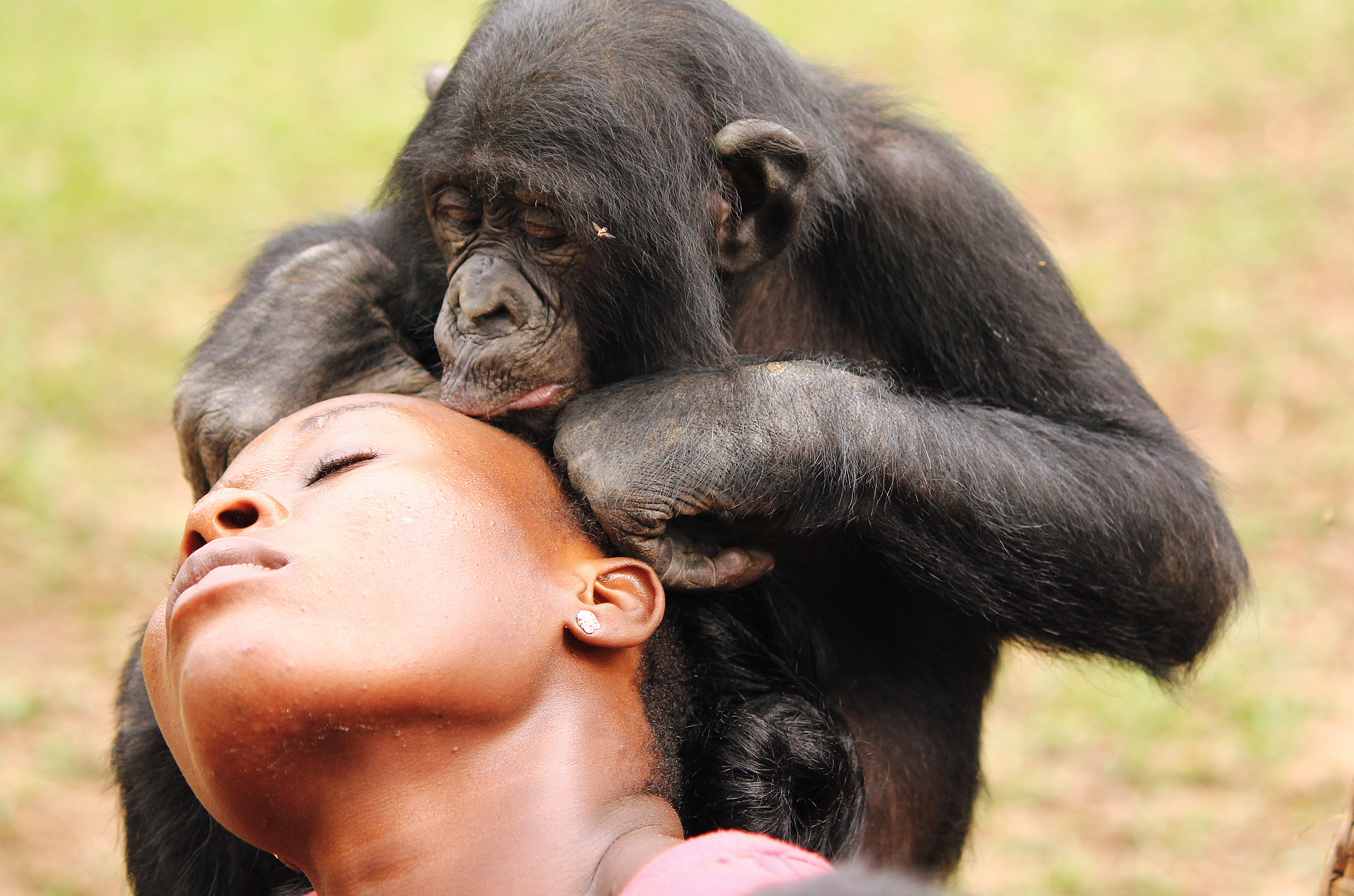
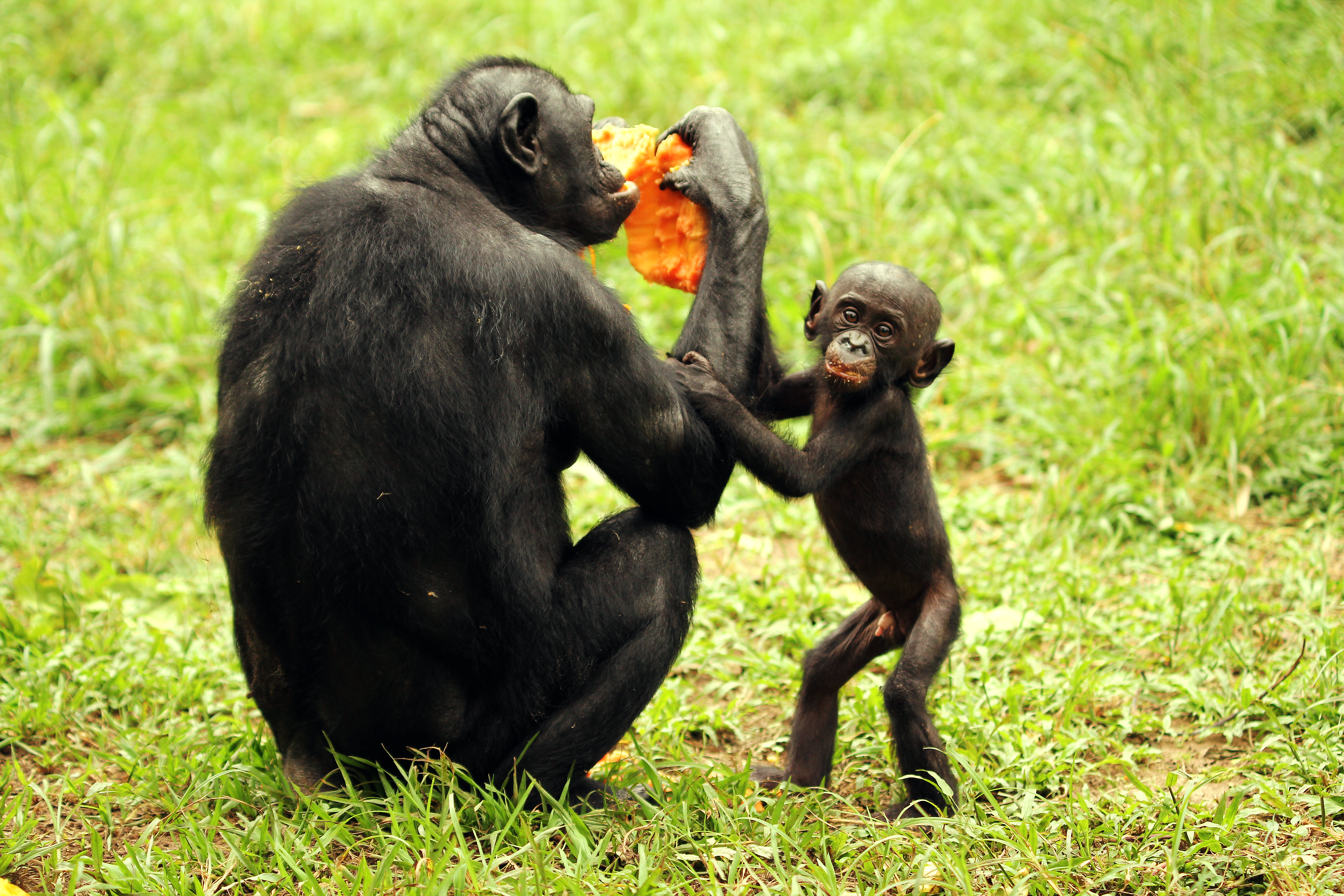
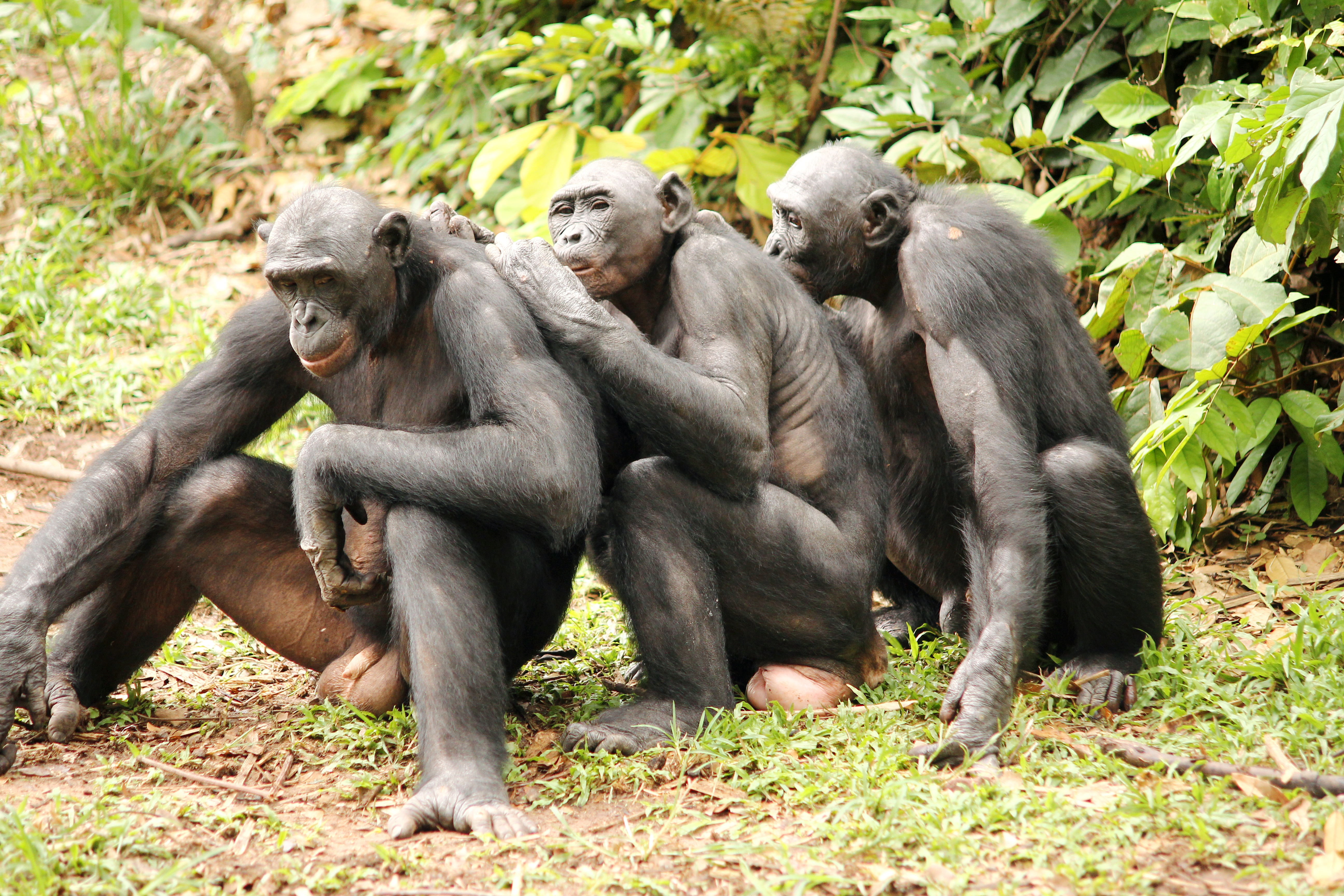
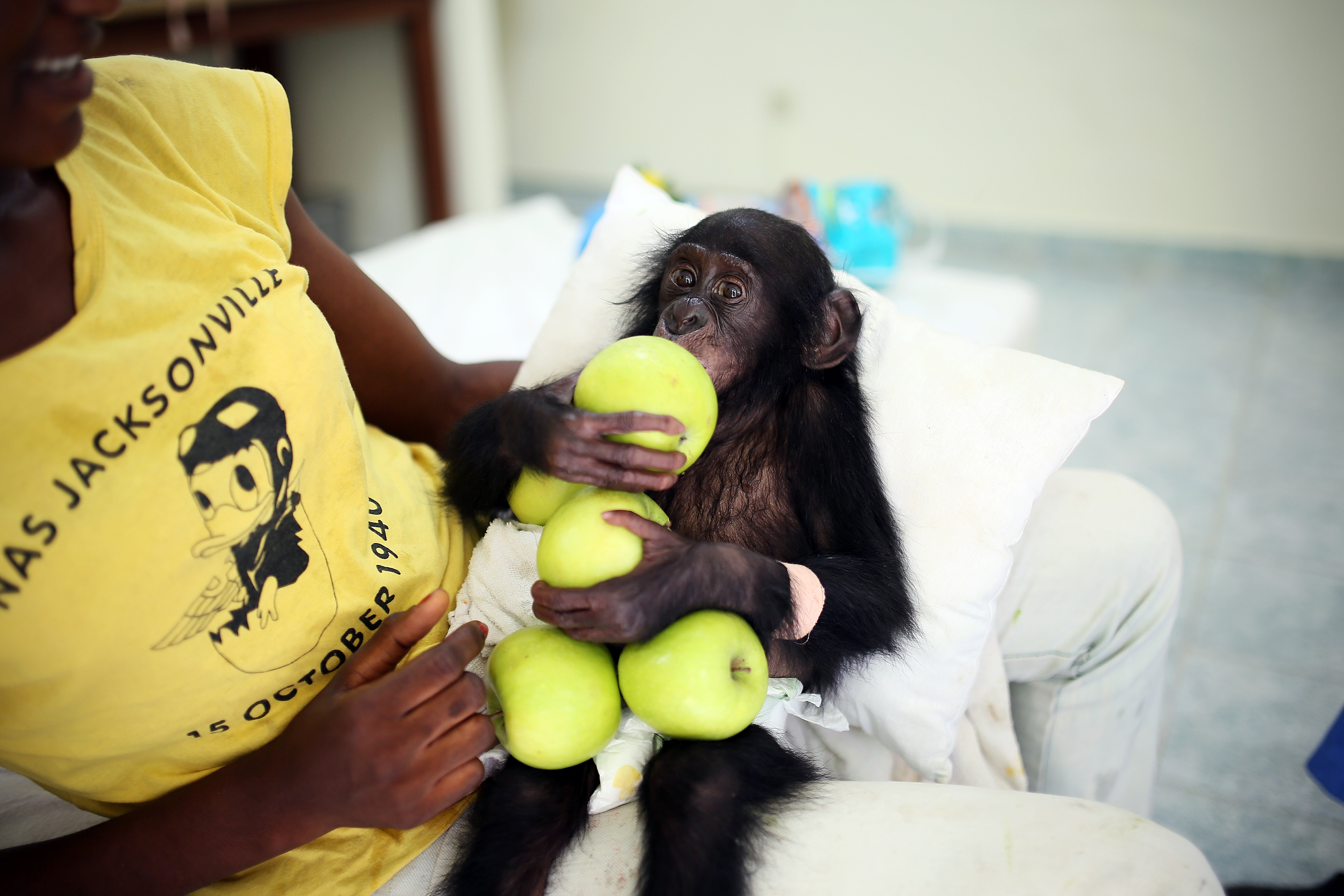
- Photo Credits: Jingzhi Tan
- Video Credit: Cintia Garai
Project Backers
- 47Backers
- 100%Funded
- $4,535Total Donations
- $96.49Average Donation
